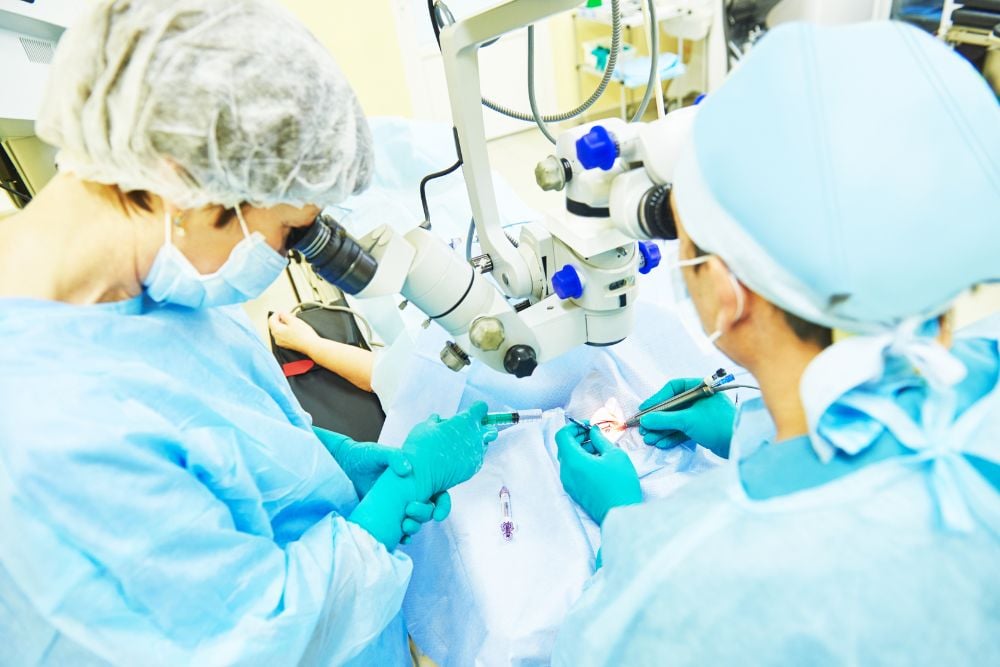Finding the Right AMD Surgeon in the Tri-Cities: What Patients Should Know

If you or a loved one has been diagnosed with age-related macular degeneration (AMD), choosing the right retina specialist is crucial. The good news is that patients in the Tri-Cities don’t have to travel far to find experienced specialists who understand AMD and are trained to deliver advanced treatments. Understanding what an AMD specialist does—and how to choose the right one—can make the process less stressful and more reassuring.
What Does an AMD Surgeon Do?
AMD surgeons are actually retina specialists—physicians with 4-5 years of additional training focused on diagnosing and treating conditions that affect the retina, the delicate, light-sensitive tissue at the back of your eye. If your primary eye doctor notices signs of AMD during a routine exam, they will typically refer you to a retina specialist for more specialized care.
Diagnostic Testing and First Visit
At your first visit, a retina specialist will perform a detailed evaluation of your eyes. This often includes advanced imaging tests such as optical coherence tomography (OCT) or fluorescein angiography, which allow them to see the layers of the retina in fine detail. These tests help confirm whether you have AMD, determine whether it is the “dry” or “wet” form, and assess how advanced it is.
Dry vs. Wet AMD Treatment
Most patients are diagnosed with dry AMD, which tends to progress slowly and, in its early stages, may not require much intervention. At this point, your provider will usually recommend regular monitoring and may suggest AREDS2 vitamins to help lower the risk of progression. For those with an advanced form of dry AMD, known as geographic atrophy, your provider may recommend new injectable medications that can slow the disease and help minimize further vision loss.
Wet AMD is less common but typically more aggressive than dry AMD and can cause rapid vision loss. It develops when the eye produces too much of a protein called VEGF (vascular endothelial growth factor), which triggers the growth of abnormal blood vessels under the retina. These fragile vessels can leak fluid or blood, damaging the retina and causing blurred central vision. The standard treatment for wet AMD is anti-VEGF injections, which block this protein to stop new vessels from forming and prevent existing ones from leaking. With regular injections, many patients can stabilize their vision, and some even regain some of the sight they lost.
When Surgery May be Needed
While most AMD treatment is managed with medications and injections, there are situations where surgery becomes important. For example, some patients may develop a vitreous hemorrhage (bleeding into the gel of the eye, more common in wet AMD) or a retinal detachment, which can occur in either form of AMD. In these cases, procedures such as laser surgery (photocoagulation) or vitrectomy can be performed to repair damage and stabilize the retina. Even if surgery is not the first line of treatment, having a specialist who is fully trained in these delicate procedures ensures that patients have access to comprehensive care if more advanced intervention is ever needed.
Choosing the Right Specialist
When you’re deciding where to go for AMD care, experience matters. A retina specialist who regularly treats AMD will be more familiar with subtle changes in imaging and know how to tailor treatment to each patient. Equally important is the technology they use. High-resolution OCT scans, for example, can reveal retinal changes long before you notice symptoms, allowing treatment to begin as early as possible. Additionally, for patients who may have limited options, specialists who participate in clinical research can offer access to promising treatments not yet widely available.
You’ll also want a specialist who works closely with general eye doctors. That collaboration allows for prompt referrals and seamless care, ensuring no important details are missed and that treatment can begin as early as possible—sometimes even before symptoms appear.
Finally, take some time to learn about the specialist before your first appointment. For example, you can read patient reviews to give you a sense of others’ experiences and review doctor bios to gain confidence in their training and expertise.
Expert AMD Care in the Tri-Cities
If you’ve been diagnosed with AMD or if you’re starting to notice changes in your central vision, now is the right time to take the next step. With Southeastern Retina’s offices conveniently located throughout the Tri-Cities, you don’t have to travel far for advanced AMD care. Wherever you are in the region, expert care is never far away. Contact us today and take the first step toward protecting your vision.
